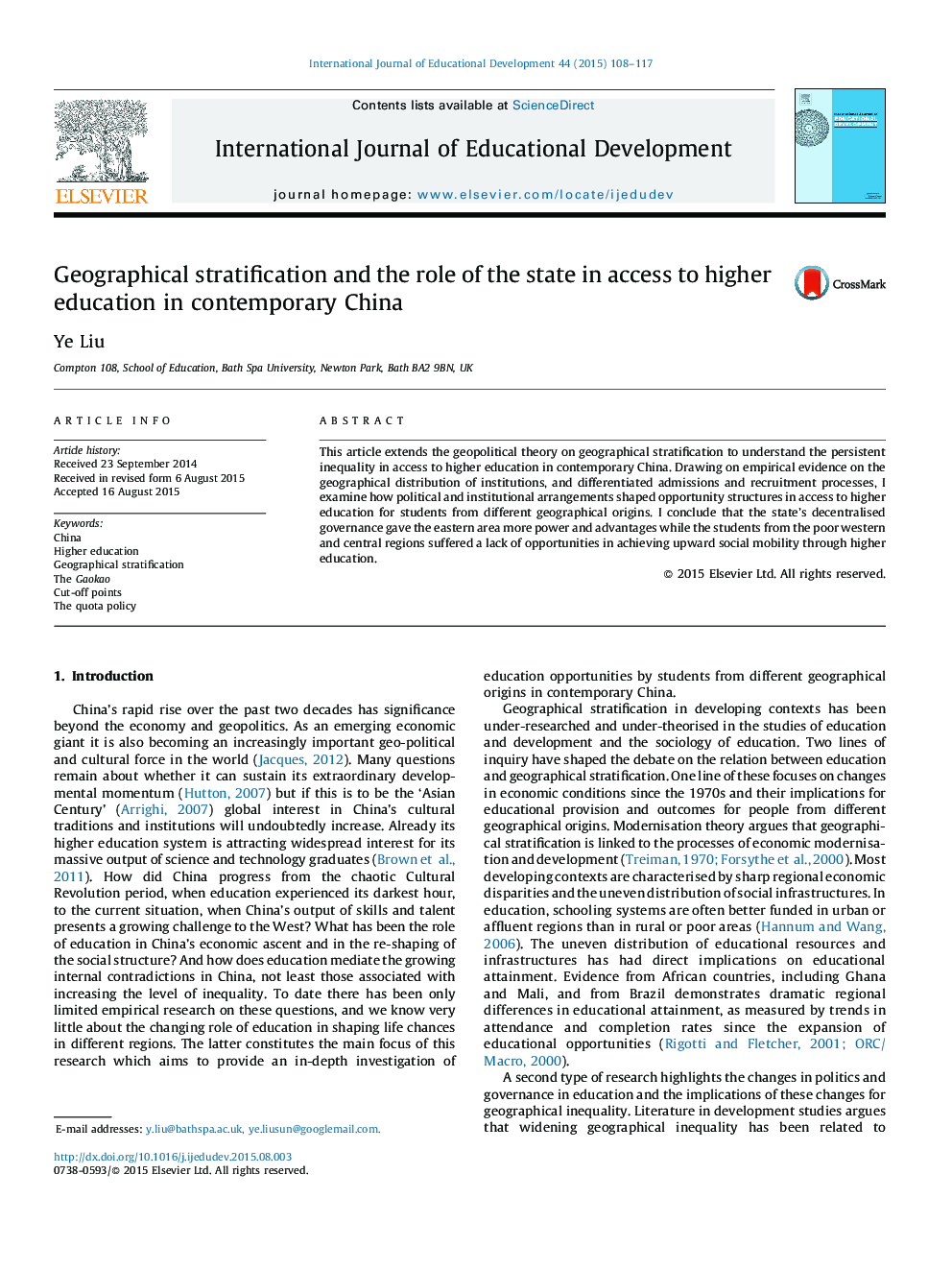| Article ID | Journal | Published Year | Pages | File Type |
|---|---|---|---|---|
| 356061 | International Journal of Educational Development | 2015 | 10 Pages |
Abstract
This article extends the geopolitical theory on geographical stratification to understand the persistent inequality in access to higher education in contemporary China. Drawing on empirical evidence on the geographical distribution of institutions, and differentiated admissions and recruitment processes, I examine how political and institutional arrangements shaped opportunity structures in access to higher education for students from different geographical origins. I conclude that the state's decentralised governance gave the eastern area more power and advantages while the students from the poor western and central regions suffered a lack of opportunities in achieving upward social mobility through higher education.
Keywords
Related Topics
Social Sciences and Humanities
Social Sciences
Development
Authors
Ye Liu,
